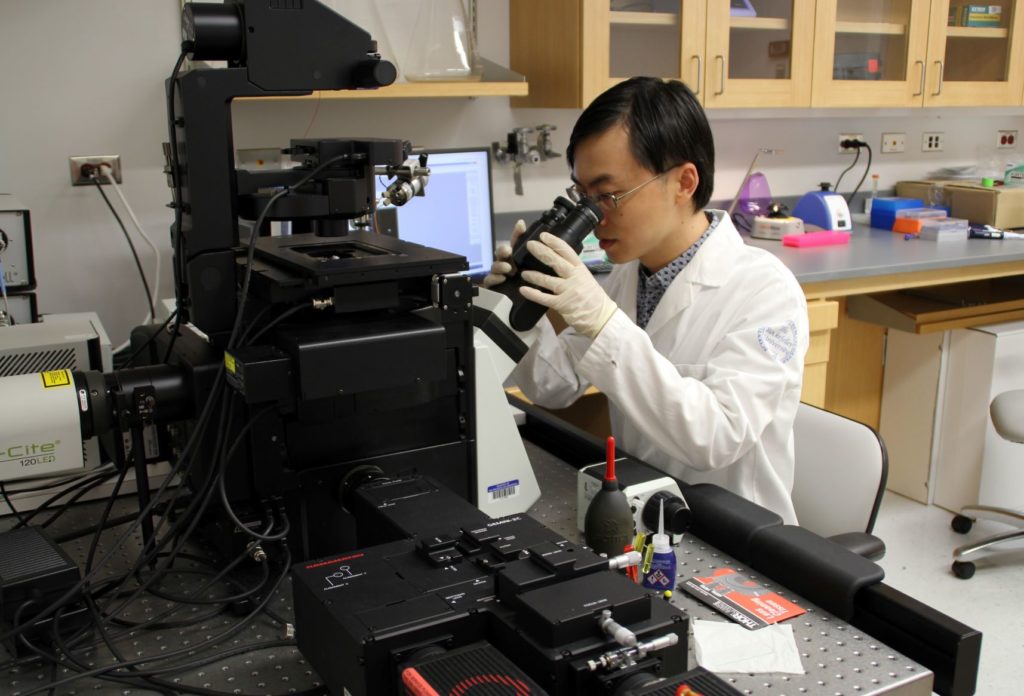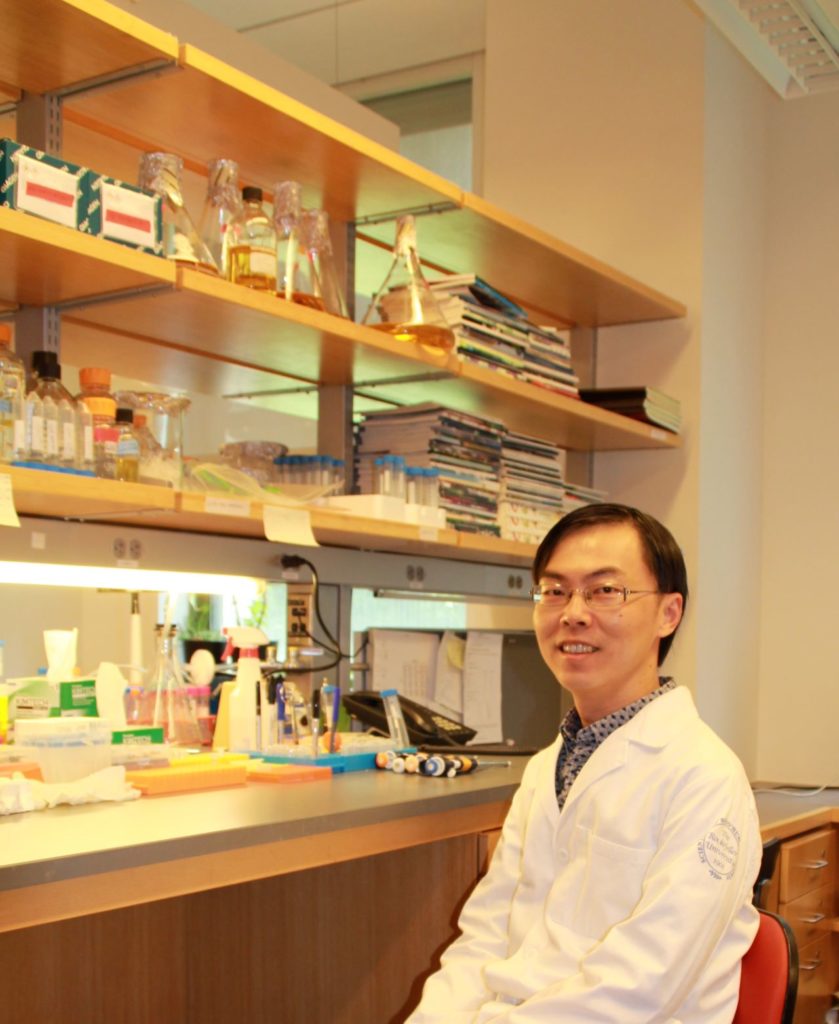Shixin Liu, PhD ‹ Back To 2020 Winners
2020 Winners
Assistant Professor
Laboratory of Nanoscale Biophysics and Biochemistry
The Rockefeller University
Vision
Seeing is believing. Conventional ways of studying chromatin biology mostly detect stable associations and steady-state properties, whereas transient and heterogeneous interactions often underlie epigenome homeostasis. We use cutting-edge biophysical tools to visualize the dynamic interplay between chromatin and chromatin-modifying enzymes. By catching individual enzyme–substrate complexes in action, we hope to better understand how stochastic epigenetic events collectively achieve deterministic transcriptional programming and cell fate control, as well as how these processes go awry in cancer. The mutation-selective binding interfaces and their altered kinetic traits unveiled by our investigations could be exploited for cancer therapy with improved specificity.
Shixin Liu, PhD is Assistant Professor and Head of the Laboratory of Nanoscale Biophysics and Biochemistry at The Rockefeller University. He entered the Special Class for the Gifted Young at the University of Science and Technology of China and received a B.S. in Biology in 2003. He did graduate research with Xiaowei Zhuang at Harvard University where he used single-molecule fluorescence methods to study enzymology and protein-nucleic acid interactions. After receiving a PhD in Chemistry in 2009, he joined Carlos Bustamante’s group at the University of California, Berkeley as a postdoctoral fellow, where he investigated the mechanical operation of biomolecular motors involved in genome packaging and gene expression. In his independent laboratory, Dr. Liu chiefly leverages single-molecule fluorescence detection and force manipulation techniques to interrogate the biophysical principles by which molecular machines navigate through crowded chromatin environments to access, decode, and modify the genome and epigenome. Dr. Liu is the recipient of an NIH Pathway to Independence Award, a March of Dimes Basil O’Connor Scholar Award, a Kimmel Scholar Award for Cancer Research, a Quadrivium Award for Innovative Research in Epigenetics, and an NIH Director’s New Innovator Award.
Single-Molecule Dissection of Epigenetic Dysregulation Induced by Oncogenic Mutations in Histones and Histone-Modifying Enzymes

The traits of an organism are determined not only by the sequence of its DNA, but also by the set of chemical modifications attached to the DNA and to the proteins that organize and package DNA. These modifications mark regions of the genome to control which genes are turned on or off at specific stages during an individual’s development. When modifications are incorrectly added or erased, undesirable gene products are made, which disrupt normal cell function and cause a variety of human diseases including cancer. Therefore, elucidating the mechanisms of enzymes that catalyze these modifications are of great interest to the biomedical community. However, traditional ways to study these enzymes follow the average properties of a large number of them, which masks any nonuniform behavior and fleeting reaction hidden among the population. Such infrequent events might just be the key to cracking the secrets of the operation of these tiny machines.

“The Pershing Square Sohn Prize will embolden us to take on ambitious interrogations that were previously thought impossible. By discerning the dynamics of individual enzymes that control the chromatin state and cell fate, we may finally be able to identify the molecular culprits underlying cancer associated with epigenetic dysregulation.”
In this project, we plan to utilize cutting-edge biophysical and biochemical tools to catch these enzymes in action. Specifically, we will visualize how a particular enzyme named Polycomb repressive complex 2 (PRC2) recognizes and moves on packaged DNA, bringing about physical and chemical changes to the genome. We will also investigate how mutations found in cancer patients affect the dynamics of PRC2 and change its function. This unique approach—that is, recording the performance of individual molecules—will add a new dimension to our understanding of cancer and may lead to new ways to treat these devastating diseases.
“Innovation is the courage to think outside the box, the patience to equip oneself with the right set of skills, and the leadership to assemble a diverse team of talents who share the same curiosity and passion.”